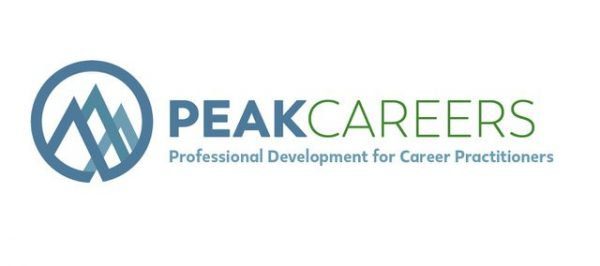When I first heard Geoff Pearman (workforce development consultant in New Zealand) use the term ‘rebalancing’ to describe how Boomers could look at the next phase of their lives, I knew I liked it. I have struggled with how to describe this time after leaving full-time employment to clients I work with, and now have embraced ‘rebalancing’ rather than retirement, “3rd age”, or whatever else is out there. This is a great way to look at ALL career changers as well. (Read Geoff’s article).
People don’t just stop living when they turn 62 to retire and watch eight hours a day of I Love Lucy reruns. This time in their lives is an opportunity to really look at their life and rebalance. Most people want to keep active: possibly volunteering, traveling, picking up new (or old) hobbies. Some will want to keep working, albeit maybe something different than what they’ve done for most of their careers…and maybe with more flexibility.
Here are four areas to explore when you are working with a client who is changing career paths, and in particular for Boomers who are leaving full-time employment and facing their ‘second adult lifetime’.
VALUES
What is important? Where do they want to spend their time and energy? Is it spending time with family? Some type of work? Volunteering in the community? Gardening? Traveling? Boomers should look ahead at their second adult lifetime with possibly 20 productive years. They should choose what is important to them and ask how much energy they want to give to each area. All career changers should use these times to do the same. Are they REALLY doing what they want to do and considering work-life balance issues?
ROLES
We all play a variety of roles in our lives: worker, spouse, parent, learner, community member, leisurite, and others. In particular, we have roles at work that ‘identify’ us to others. “What do you do for work?” is a common early question in new conversations. After working for a while in one job, our roles tend to become solidified and become our identity.
Whenever a person changes jobs, and for Boomers especially who may have spent 20-30 years making a living for them and their families, people should now ask themselves these all-important questions that can rebalance their lives:
- Who am I?
- What role do I want to play now in my daily life?
- How do I want to rebalance all my roles?
- What kind of community member do I want to be?
- Am I spending enough time doing the things I enjoy?
- Are my choices sustainable on a financial level?
ROUTINES
Humans are creatures of habits and we love routines. Routines bring us clarity to the roles we play with our family and colleagues. But what happens when we leave an occupation? “Who am I and what do I DO?” becomes a real question that requires some thought. How do you rebalance your routines?
Is it the coffee shop on Tuesday mornings? Is it ‘date night‘ on Thursday? How do I make sense of my routines which are totally disrupted with the loss of a job or a new job?
When working with our clients I think encouraging them to CREATE new structure in their lives by making new routines is important. Even the simple things like eating eggs on Sunday, Tuesday, and Thursday is one less decision that needs to be made on those mornings and is also one more routine that they can expect to happen. Maybe it is contacting one person in their network every Monday, Wednesday, and Friday and trying to set up a coffee or phone conversation that week.
When I left my position as the Director of Advising, Career, and Transfer the most difficult part of that transition was finding new routines. I faced it every day, every hour, and every week until I could create new routines, I felt discombobulated.
PURPOSE
Helping our clients define their purpose or identify a new purpose is so important as people work to rebalance their lives. They need to have a vision of what is important for them to do. I worked with a client who was very talented at what she did; when she retired, people kept approaching her to do similar things she had left in that job. Because she didn’t know what she was becoming or what she wanted her purpose to be, she could not say no to them. So, she kept getting similar work. But this was NOT what she really wanted to do.
What she needed to do was take time to envision where she was going, define her new purpose in her life, and determine how she wanted to rebalance her life between work, volunteering, family, etc. It was an opportunity lost for her. Finding her purpose and defining it would have helped her to follow her heart into this next stage of her life. Maybe…maybe she’ll figure it out on her own, but often people need a ‘nudge’ from a coach or good friend.
TIME TO REBALANCE
- What were the things that were important to you 25 years ago?
- How can you incorporate them into your life now? Do you want to?
- Is there a new balance in how your day unfolds?
Without taking the time to focus on VALUES, ROLES, ROUTINES, and PURPOSE
it will be difficult to rebalance in these transitional times of life…
and our clients can end up blowing in the wind.
————————————————-
Jim Peacock is the Principal at Peak-Careers Consulting and writes a weekly email for career practitioners. Peak-Careers offers discussion-based online seminars for career practitioners focused on meeting continuing education needs for CCSP, GCDF and BCC certified professionals as well as workshops for career practitioners and individual career coaching.
He is the author of A Field Guide for Career Practitioners: Helping Your Clients Create Their Next Move and The Adventure of Finding Me in New Zealand. He is also the recipient of the 2020 Kenneth C. Hoyt Award from the National Career Development Association and the Mid-Atlantic Career Counseling Association’s Professional Contribution’s Award in 2020.
Sign up here to receive my TOP 10 TIPS WHEN WORKING WITH AN UNDECIDED PERSON. You will also receive the career practitioner’s weekly email on a variety of career topics, industry news, interesting events, and more.




Leave a Reply